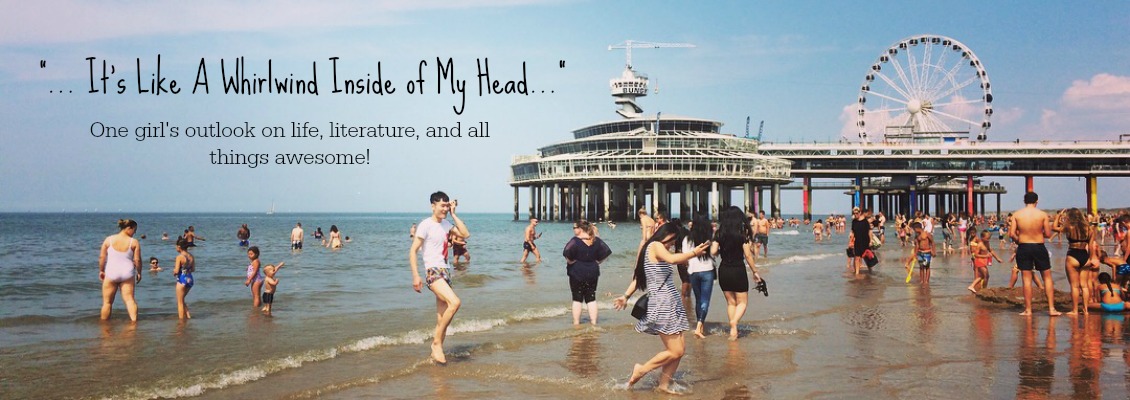
Note: This is one of the few reviews that I am trying to write and post before I start in on things that I have read in 2016. Thank you for your patience!
"As far back as she can remember, Azadeh Moaveni has felt at odds with her tangled identity as an Iranian-American. In suburban America, Azadeh lived in two worlds. At hoe, she was the daughter of the Iranian exile community, serving tea, clinging to tradition, and dreaming of Tehran. Outside, she was a California girl who practiced yoga and listened to Madonna. For years, she ignored the tense standoff between her two cultures. But college magnified the clash between Iran and America, and after graduating, she moved to Iran as a journalist. This is the story of her search for identity, between two cultures cleaved apart by a violent history. It is also the story of Iran, a restive land lost in the twilight of its revolution.
Moaveni's homecoming falls in the heady days of the country's reform movement, when young people demonstrated in the streets and shouted for the Islamic regime to end. In these tumultuous times, she struggles to build a life in a dark country, wholly unlike the luminous, saffron and turquoise-tinted Iran of her imagination. As she leads us through the drug-soaked, underground parties of Tehran, into the hedonistic lives of young people desperate for change, Moaveni paints a rare portrait of Iran's rebellious next generation. The landscape of her Tehran-- ski slopes, fashion shows, malls and cafes-- is populated by a cast of young people whose exuberance and despair brings the modern reality of Iran to vivid life."
I read this for my Creative Nonfiction class this semester. We had to give a memoir presentation and this was one of the books we could choose from. Some unknown force has been drawing me back to the Middle East. Morocco was just a small taste, but even so... I have this desire to know more and to see more. Since I can't physically go there right now, this is how I will travel.
I know very little about Iran and even less about the problems that it faced at the time this book was written and continues to face today. This was a nice way to see what life-- every day life-- is like in this place. Even though Azadeh possesses an Iranian passport, she knows very little about what it's like to be Iranian and identify with that label on a really deep and complex level. Being Iranian and living away from Iran leads to a very different identity than someone who is Iranian and is actively creating a life for themselves in Iran. It was fascinating to see her form her identity and develop as an Iranian person and see how people reacted to her because she wasn't there during the country's greatest struggle. Her family was in a position of power at the time of the revolution, so when it became too dangerous to stay, they were able to leave and many others didn't have this same opportunity.
My favorite part and also the part that made me sad was how women got along in this society. Iran, at least at the time this book was written-- I can't be sure about now-- there were very strict rules. Women needed to wear hijab and dress modestly at all times. It was safer to travel with another person, but that other person can't be a boyfriend, because that's not proper. One story that really stuc out to me was when Azadeh was out with friends, two of whom were a couple, and they were stopped by police. They hadn't done anything wrong to provoke the police's attention, but they were stopped any way. The police asked Azadeh's friend if the man she was next to was her boyfriend. She has to lie-- no, he's not her boyfriend. The police then says (and I paraphrase) "Alright, then you wouldn't mind if he got hurt" and proceeds to beat him up in order to get a reaction out of this girl and reveal once and for all that this guy is her boyfriend and they are doing something against the rules. The girl does not make a sound or have a reaction of any kind. It's heartbreaking that women aren't trusted at all. Another story was Azadeh's experience when she found the gym for women. They would remove their hijabs in order to exercise and they spoke openly about any subject in a way they couldn't if they were out in the city. Women can have a life of their own, but with great difficulty and behind many closed doors. It's very sad.
This is a book that I liked a little bit more once I started getting into the book, but it did seem like Azadeh spent a lot of time whining about her life in the U.S. In hindsight, it's possible that she just needed a little perspective and living in Iran, this country where you have to watch your step and is dangerous in the face of revolution, was just what she needed.
I don't know if I will ever read this book again, but I look forward to reading more about Iran in the future. It's a country I never thought that I would be even remotely interested in.
I give 'Lipstick Jihad':
Thanks for Reading!
--Jude


No comments:
Post a Comment
I love your comments! Comment away!